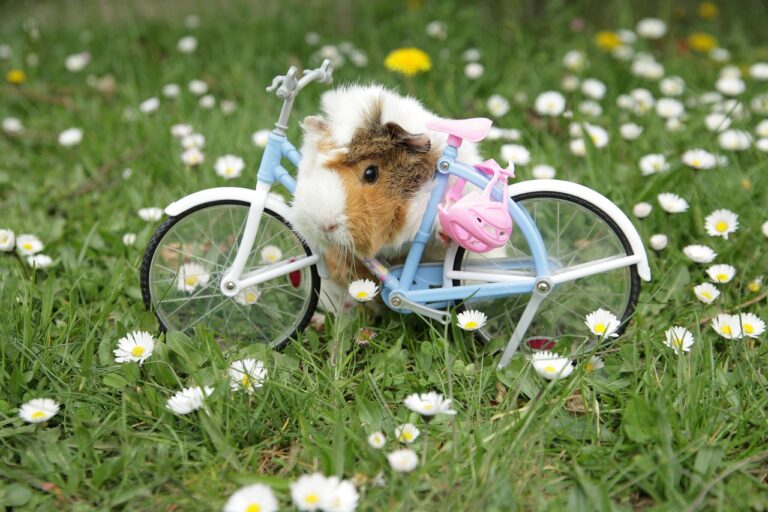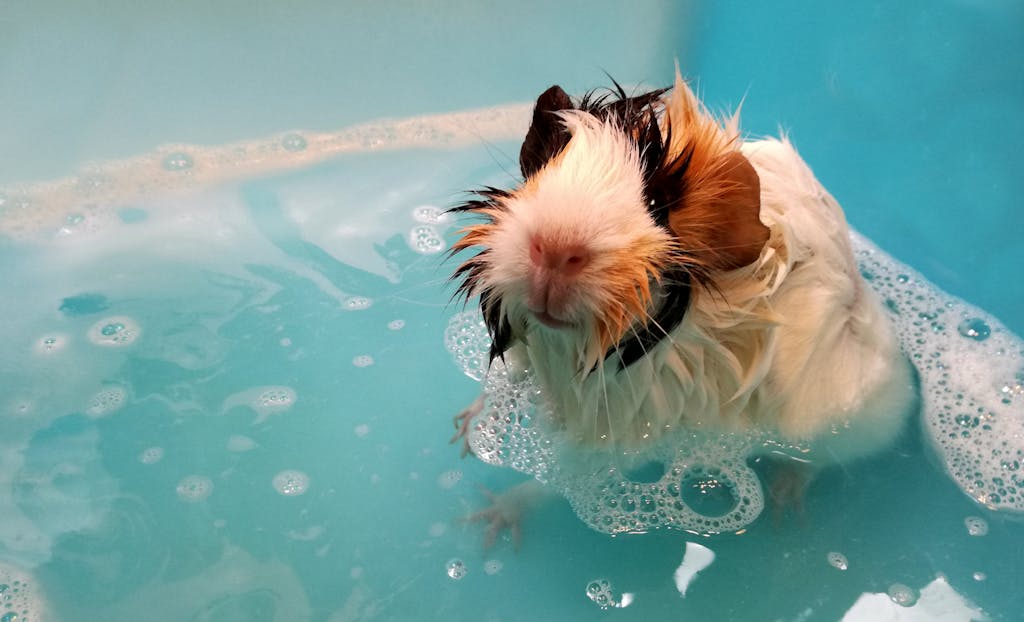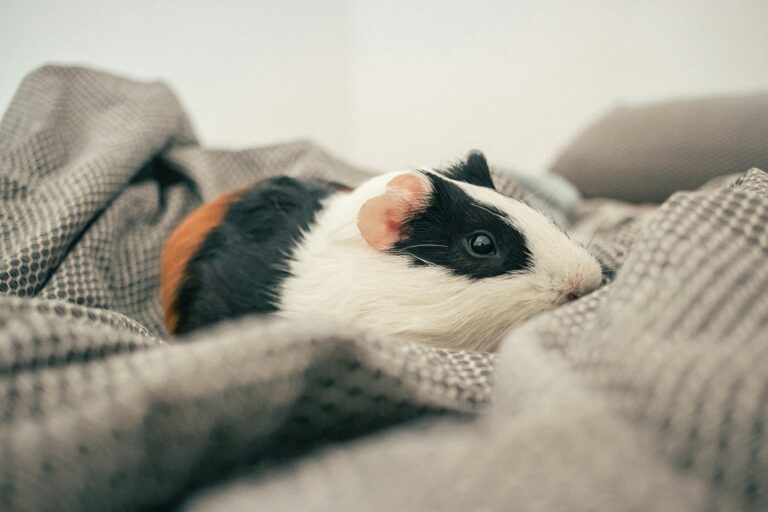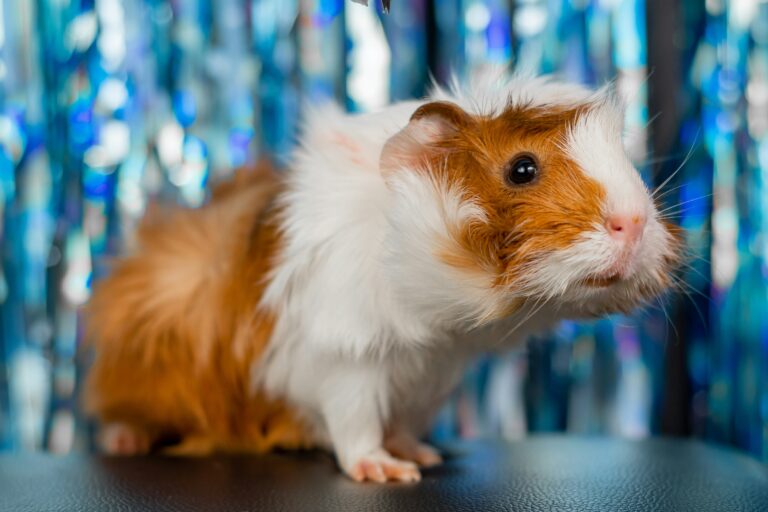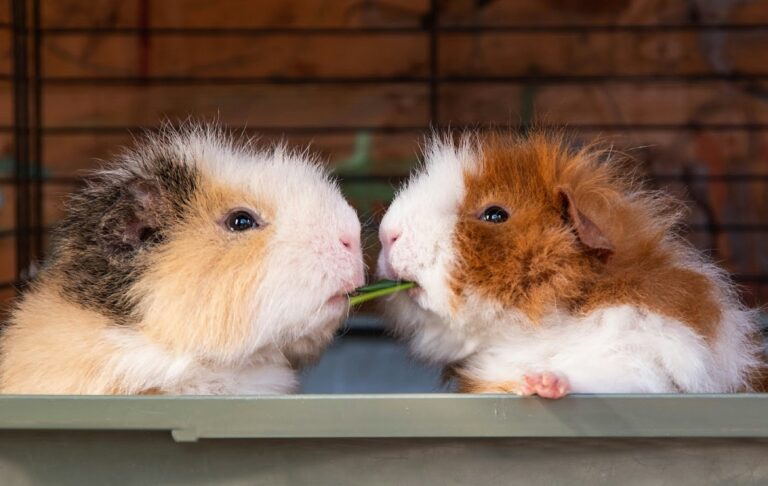Tips to Guinea Pig Proofing your Home
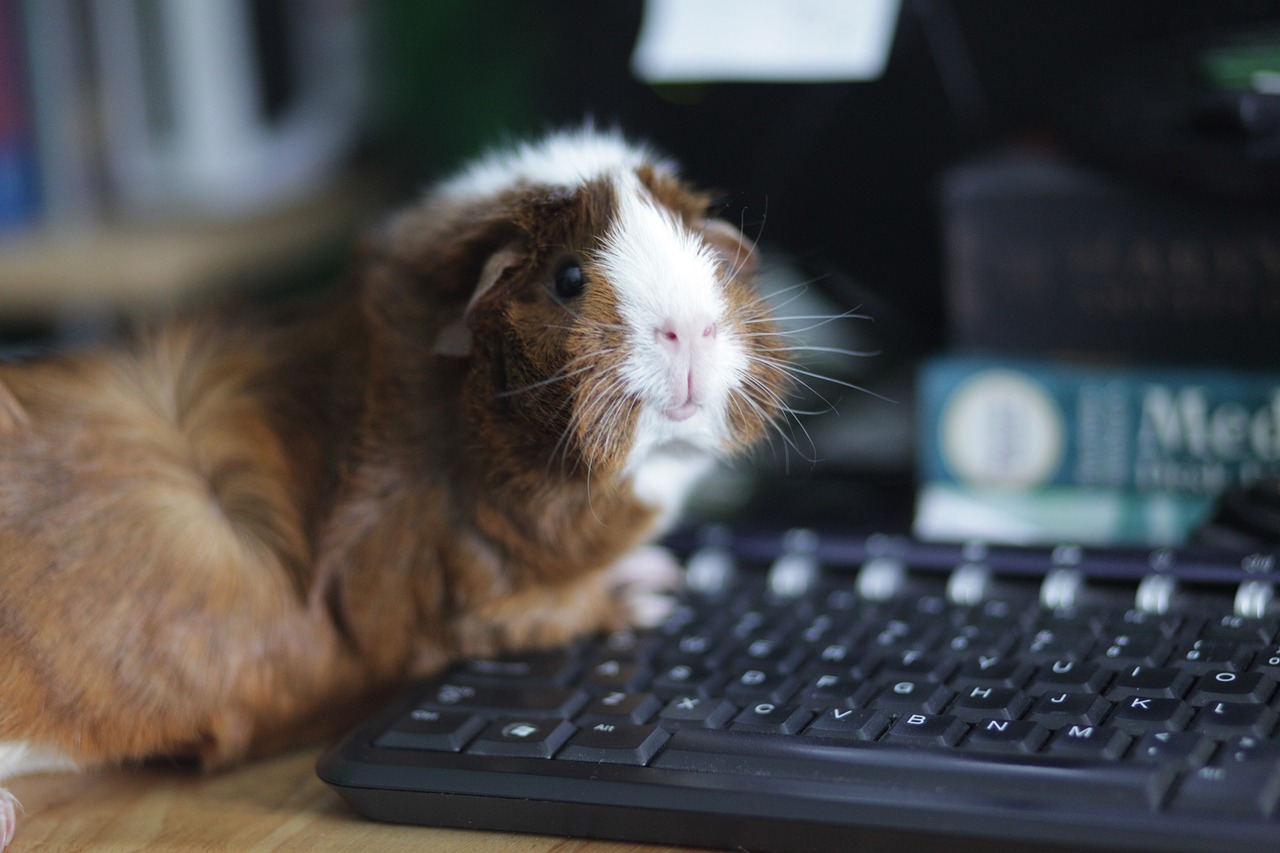
Guinea pigs bring joy and companionship to countless homes around the world! Many people consider these small, furry critters as not just pets, but as cherished members of the family. However, like any small animal, guinea pigs require a safe environment to thrive in. Guinea pig proofing your home is essential to ensure their safety and well-being. In this guide, we’ll explore everything you need to know to create a guinea pig-friendly environment within your home.
Understanding Guinea Pigs
Before delving into the specifics of guinea pig proofing, it’s crucial to understand these furry companion’s behaviors and needs. Guinea pigs are naturally curious and love to explore their surroundings. They are also prone to chewing and nibbling on objects to maintain their dental health. Additionally, guinea pigs are sensitive to temperature changes and require a consistent environment to stay healthy.
With these characteristics in mind, it becomes evident that creating a safe space for your guinea pig involves more than just removing obvious hazards. It requires careful consideration of their behaviors and needs to ensure they remain happy and healthy.
Identifying Potential Hazards
The first step in guinea pig proofing your home is identifying potential hazards. Start by surveying each room your guinea pig will have access to and identify items or areas that could pose a threat to their safety. Common hazards include:
- Electrical Cords: Guinea pigs love to chew, and electrical cords are no exception. Exposed cords pose a significant risk of electrocution if chewed through. Ensure all cords are safely tucked away or covered with protective tubing to prevent access.
- Toxic Plants: Many common household plants are toxic to guinea pigs if ingested. Before bringing your guinea pig home, research which plants are safe and remove any toxic ones from their reach.
- Small Spaces: Guinea pigs are skilled at squeezing into tight spaces. Ensure there are no gaps or openings in furniture or walls where your guinea pig could become trapped.
- Household Chemicals: Cleaning products, pesticides, and other household chemicals should be stored securely in cabinets or closets inaccessible to your guinea pig.
- Sharp Objects: Remove any sharp objects or items with small parts that could be ingested and cause harm.
- High Places: Guinea pigs are not agile climbers and can easily injure themselves if they fall from heights. Remove any items that your guinea pig could climb onto and potentially fall from.
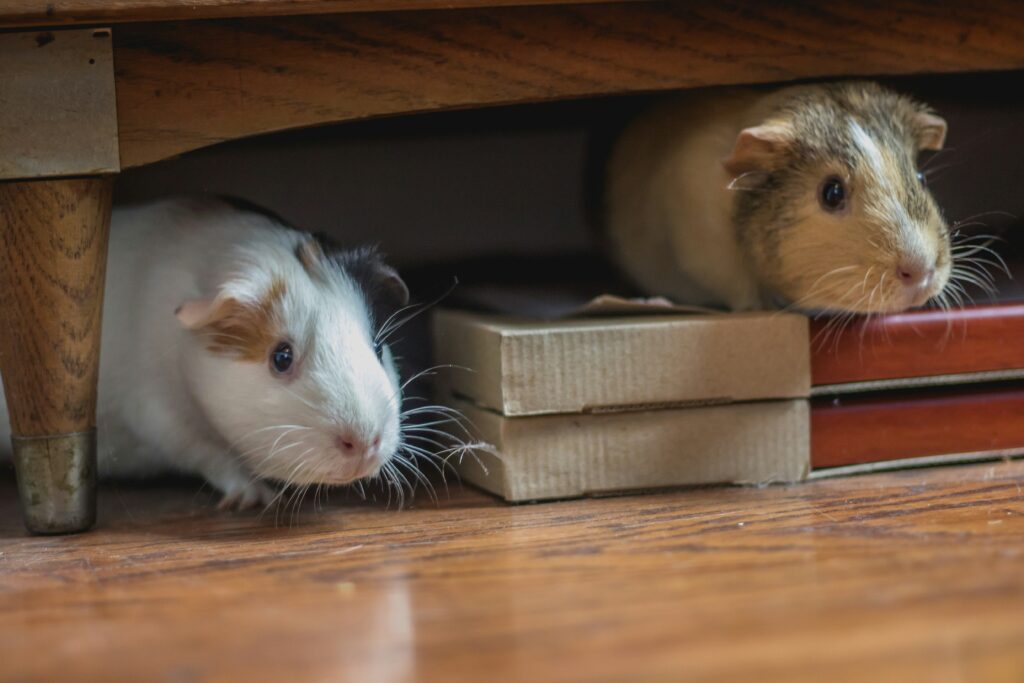
Creating a Guinea Pig Friendly Environment
Once you’ve identified and addressed potential hazards, it’s time to create a guinea pig-friendly environment within your home. Consider the following tips:
- Provide Adequate Space: Guinea pigs require ample space to move around and exercise. A large cage or enclosure with plenty of room to roam is essential for their well-being. Additionally, consider providing a designated play area outside of their enclosure where they can stretch their legs and explore under supervision.
- Choose Safe Flooring: Opt for flooring that is safe and comfortable for your guinea pig. Avoid wire-bottomed cages, as they can cause foot injuries. Instead, choose cages with solid bottoms or line wire-bottomed cages with fleece or bedding to provide a soft surface.
- Offer Hideouts and Enrichment: Guinea pigs enjoy having places to hide and explore. Provide hideouts, tunnels, and toys to keep them mentally stimulated and engaged. Cardboard boxes, PVC pipes, and untreated wooden blocks make excellent enrichment options. If you want some fun DIY toy and enrichment ideas, check out our post here!
- Maintain a Consistent Temperature: Guinea pigs are sensitive to temperature extremes and should be kept in a climate-controlled environment. Keep their living area between 65-75°F (18-24°C) and away from drafty areas.
- Monitor Their Diet: A healthy diet is crucial for guinea pigs’ overall well-being. Provide a constant supply of fresh hay, high-quality guinea pig pellets, and fresh vegetables daily. Avoid feeding them foods that are high in sugar or fat, as these can lead to health problems.
- Regularly Clean Their Environment: Keeping your guinea pig’s cage or enclosure clean is essential for their health. Remove soiled bedding daily and clean the entire enclosure weekly with a pet-safe cleaner.
- Provide Veterinary Care: Regular check-ups with a qualified veterinarian are essential to ensure your guinea pig remains healthy. Schedule annual wellness exams and seek medical attention promptly if you notice any signs of illness or injury.
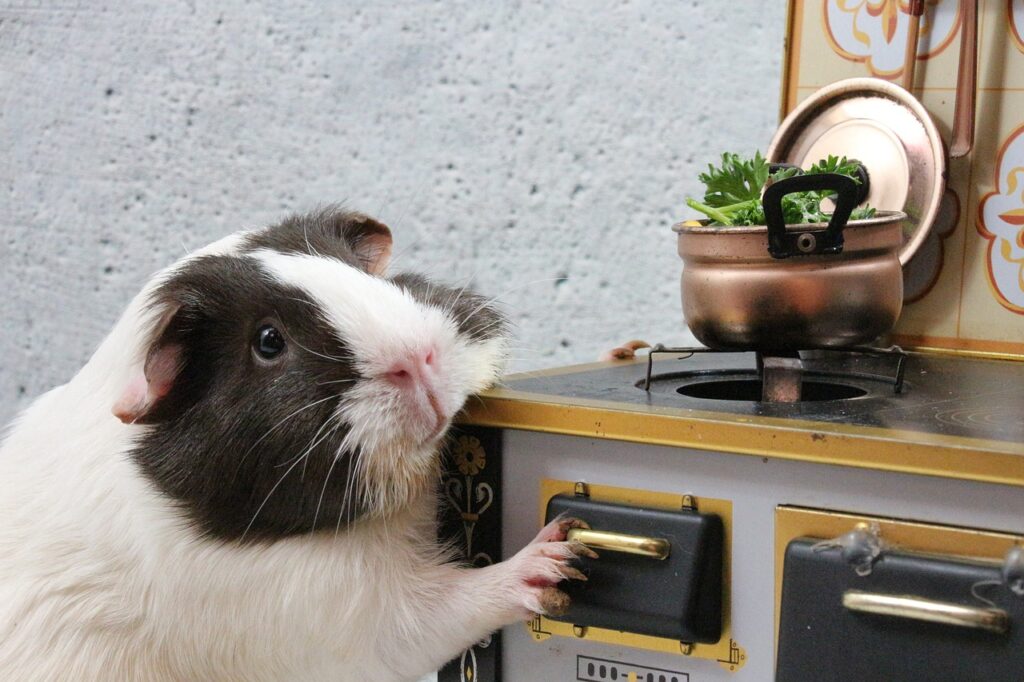
Conclusion
Guinea pig proofing your home is a crucial step in providing a safe and enriching environment for your furry companion! By identifying potential hazards, creating a guinea pig-friendly environment, and providing proper care, you can ensure your guinea pig lives a happy and healthy life as a cherished member of your family. With diligence and attention to detail, you can create a space where your guinea pig can thrive for years to come.

